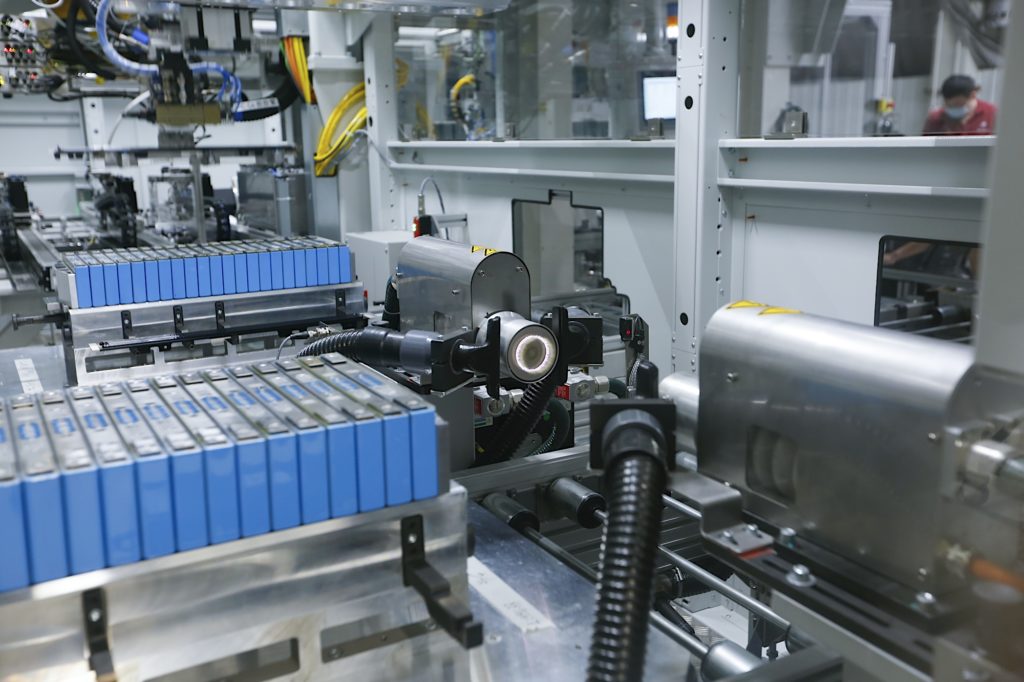With BMW planning to develop and introduce one final generation of internal combustion engines, the automaker is continuing to invest heavily in the future of electric vehicle technology, more specifically in the research and development of the batteries that serve as an integral component. Over the past several weeks, there have been a number of developments relating to investments that BMW has made, and with startups that BMW has previously invested in.
CelLink
The first of these stories concerns CelLink, a California-based startup developing a replacement for the traditional wiring harness used in every modern automobile. According to news outlets, CelLink, which was founded in 2011, has conceived and developed a new way of connecting control modules and units, sensors, individual battery cells, and battery packs, and transferring both power and data across them. The product is referred to as the flex harness, and it effectively integrates the functions of several separate traditional wiring harnesses into one, according to the company. Some of the key benefits netted by such a product include weight and cost reductions, along with streamlined assembly.
BMW i Ventures, the venture capital arm of the BMW Group, recently upped its investment in CelLink, along with other big names including Bosch, 3M, and Lear. Ford also has a stake in CelLink, but did not participate in the latest round of funding. CelLink raised approximately $315,000,000, and said it intends to use the funds to build a 25-line factory in Georgetown, Texas. Over the long term, CelLink hopes to develop its products for applications that include aerospace, agriculture, commercial vehicles, and the military.
Our Next Energy (ONE)
Last October, BMW i Ventures announced that it had invested in Our Next Energy (ONE), a Michigan-based startup focused on developing energy storage solutions that offer longer range and lower costs than the conventional batteries currently in use. Such ambitions may seem like they’re on the edge of the realm of possibility, but a prototype of a battery developed by ONE retrofitted to a Tesla Model S Long Range Plus delivered more than 750 miles of range according to the startup which was founded in 2020. The battery, referred to as Gemini 001, netted 752 miles range, and has a capacity of 207.3 kilowatt-hours even though it takes up the same space as the Tesla’s original 103.9 kilowatt-hour battery. The test included fourteen hours of driving an average of 55 mph during winter in Michigan. The same vehicle was able to achieve 882 miles of range when tested in a controlled environment on a dyno.
ONE’s battery designs are said to use lithium iron phosphate which has the disadvantages of being less energy-dense than cobalt- or nickel-based counterparts, and more susceptible to poor performance in cold weather. ONE overcame these drawbacks in its Aries battery by arranging prismatic lithium iron phosphate cells in a structural architecture that does not include the use of separate individual modules, thus increasing the density of the battery.
The Gemini battery, which is slated to go into production next year, combines the prismatic lithium iron phosphate cells with what’s referred to as a range-extender portion of the battery which is dedicated to conditions of extreme demand. The presence of the range-extender cells reduces stress and deterioration of the main part of the battery, and range-extender cells are said to use an anode comprised primarily of manganese that’s free of graphite, thus increasing energy density. The Gemini 001 battery did not use this combination of cells, and was instead built using high-energy cobalt-nickel cells, in an effort to demonstrate that it’s possible to store substantially more energy in the same space as a conventional battery.
ONE recently raised another $65,000,000 in a new round of funding led by BMW i Ventures, and the investment will be used to accelerate development of the startup’s batteries as the company evaluates potential sites for a U.S. battery manufacturing plant during the second quarter of 2022. BMW i Ventures was joined by New York-based private equity firm Coatue Management, along with Assembly Ventures, Breakthrough Energy Ventures, Flex, and Volta Energy Technologies. According to a press release, ONE has signed contracts with four customers to supply approximately 300,000 electric vehicle battery packs over the next five years.—Alex Tock
[Photos courtesy BMW AG.]
